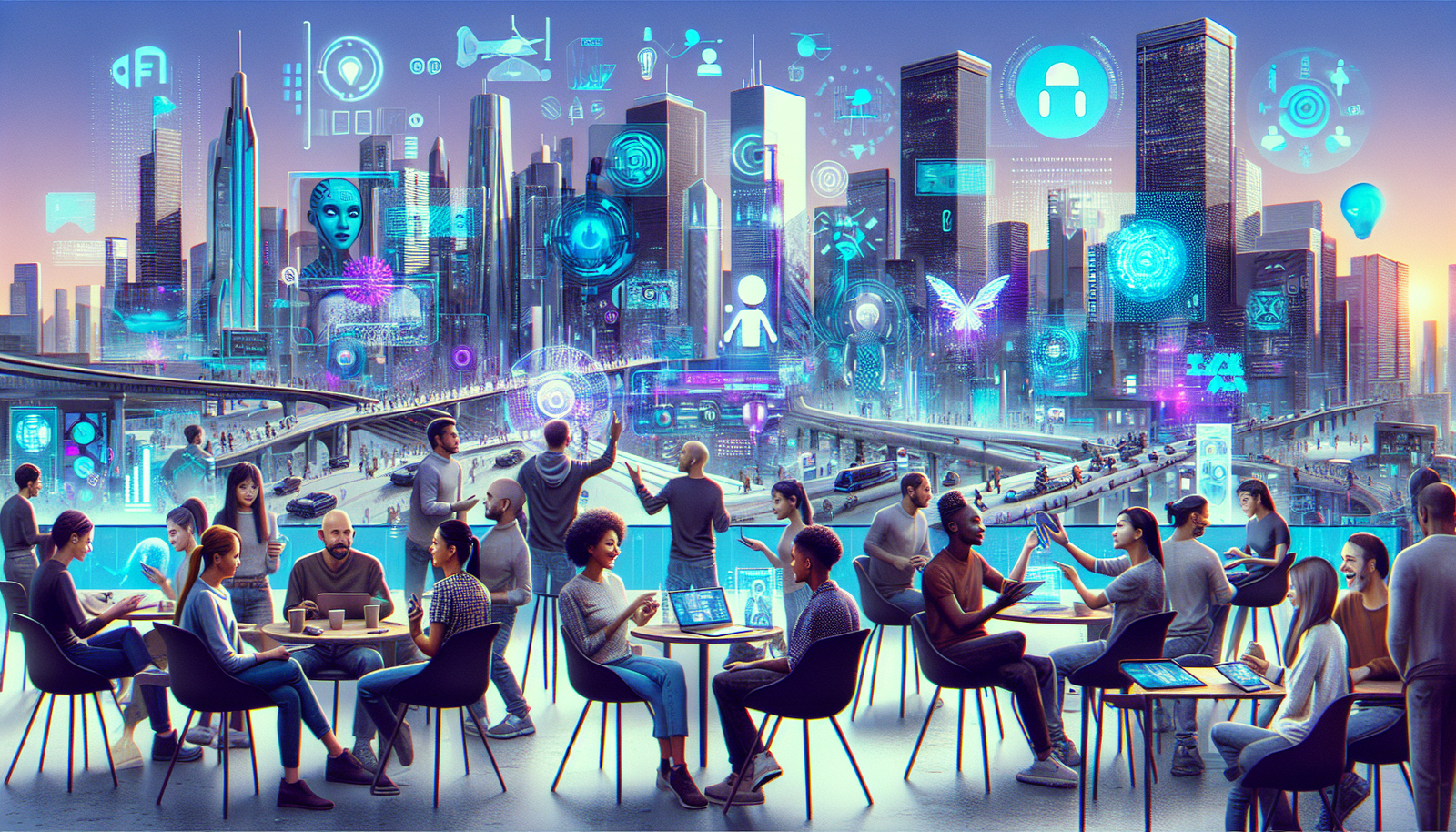Artificial Intelligence in 2025 will mark an unprecedented technological revolution, radically transforming various sectors. The challenges, such as process optimization and user experience personalization, will shape a new economic paradigm. A smooth integration of AI becomes imperative to remain competitive in a constantly evolving landscape. The emergence of modular models and adaptive agents will redefine the interactions between humans and machines. AI is already influencing our daily lives by revolutionizing decision-making and creating new opportunities.
The Rise of Modular AI
The modular architecture of artificial intelligence will transform how companies approach specific operations. Modular systems will encourage the integration of intelligences tailored to particular tasks, enabling optimized component deployment. For example, AI modules for customer service will vary across sectors, whether in finance or retail.
This “plug-and-play” approach will facilitate the integration of AI into various operations, reducing the time and resources required for deployment. As standardized APIs and communication protocols develop, interoperability will be enhanced, making AI accessible to a range of businesses, including SMEs, which often struggle to adopt effective solutions.
Edge AI and Real-Time Analytics
Edge AI, or artificial intelligence at the edge, will emerge as a key technology for instant data analysis. By performing processing locally, this approach will minimize latency, a critical factor in sectors such as predictive maintenance and medical imaging. The proliferation of smart devices, including drones and autonomous vehicles, will highlight the importance of this technology.
Edge AI systems will integrate sophisticated sensors and navigation algorithms, making their performance nearly autonomous. Recent advances in artificial intelligence chips, such as neuromorphic processors, will facilitate their deployment in resource-limited environments.
Optimization of Base Models
Prioritizing the optimization of AI models will significantly reduce training costs. Instead of developing complex models from scratch, companies will adopt innovative methods, such as parameter tuning and low-rank adaptation. This model customization approach will be particularly beneficial for specific tasks, promoting a strategic application of resources.
The linguistic and cultural proximity of AI models will become essential. The ability to adapt to varied contexts will enhance their relevance and effectiveness. The _energy efficiency_ of AI models will also be a major issue to reduce their ecological footprint, thus aligning innovation goals with contemporary environmental concerns.
Evolution of Artificial Intelligence Agents
AI agents will become more sophisticated, offering enriched interactions in varied fields such as healthcare, education, and customer service. By integrating subtle interaction elements, such as emotions, these agents will provide personalized experiences. This adaptation capability based on integrated feedback loops will continuously refine their performance without requiring re-entry by an operator.
The collaboration among artificial intelligence agents will pave the way for solutions to complex problems. This development will foster the emergence of innovative engineering solutions, from logistics planning to coordinating emergency interventions. Enriching agents through contextual dialogue could transform human interactions while simplifying several business processes.
Impacts on Different Sectors
The transformation induced by artificial intelligence will influence various sectors, including finance, where increased transparency will facilitate transactions. Generative AI and contextual tools will emerge as catalysts for innovation, redefining the customer experience. In education, such technology will enable the creation of more interactive and tailored learning content.
Customer data will be better integrated, offering deeper analysis of needs and behaviors. This technological turning point will highlight the importance of ethics surrounding AI. The development of responsible artificial intelligence will become a necessity, ensuring that innovation serves the interests of society.
Forecasts suggest that by 2025, AI will have the potential to profoundly transform human interactions. The acceleration of AI integration into our daily lives will be accompanied by growing demands for ethics and responsibility.
In the face of these changes, staying informed about the latest developments becomes imperative. The variety of challenges related to AI encourages proactive reflection on its evolution.
Frequently Asked Questions about Artificial Intelligence in 2025: Revolutionizing the Technological Landscape
What will be the main advancements in Artificial Intelligence in 2025?
In 2025, key advancements will include the emergence of modular AI systems, the expansion of Edge AI for real-time analysis, and the optimization of AI models for specific applications.
How will modular AI change the technological landscape?
Modular AI will allow companies to customize their AI solutions based on specific needs, making integration and adoption of AI more accessible, particularly for SMEs.
What will be the importance of Edge AI in 2025?
Edge AI will process data locally rather than in the cloud, which will reduce latency and improve instant decision-making, especially in sectors such as healthcare and logistics.
What impacts will AI have on the workforce in 2025?
Advancements in AI could transform the nature of jobs, with routine tasks automated, thereby creating demand for new skills while preserving certain roles requiring human interaction.
How will the optimization of AI models influence their adoption?
By 2025, optimization techniques such as parameter tuning will allow companies to adapt existing AI models to specific problems without starting from scratch, reducing costs and time required for implementation.
What ethical challenges could AI pose in 2025?
The rise of AI will raise ethical questions regarding the responsibility of decisions made by machines, data protection, and the impact on employment, requiring appropriate regulatory frameworks.
How will AI affect our daily lives in 2025?
AI tools will be integrated into many aspects of our daily lives, making services such as personal assistance, online commerce, and healthcare more efficient and personalized.
What is the role of communication protocols in the development of AI in 2025?
The standardization of communication protocols will facilitate the interoperability of AI systems, enabling easier integrations and effective interconnection between various devices and applications.
Will small and medium-sized enterprises benefit from AI innovations in 2025?
Yes, AI innovations, particularly modular AI and optimization tools, will enable small and medium-sized enterprises to leverage solutions tailored to their needs without requiring heavy investments.






